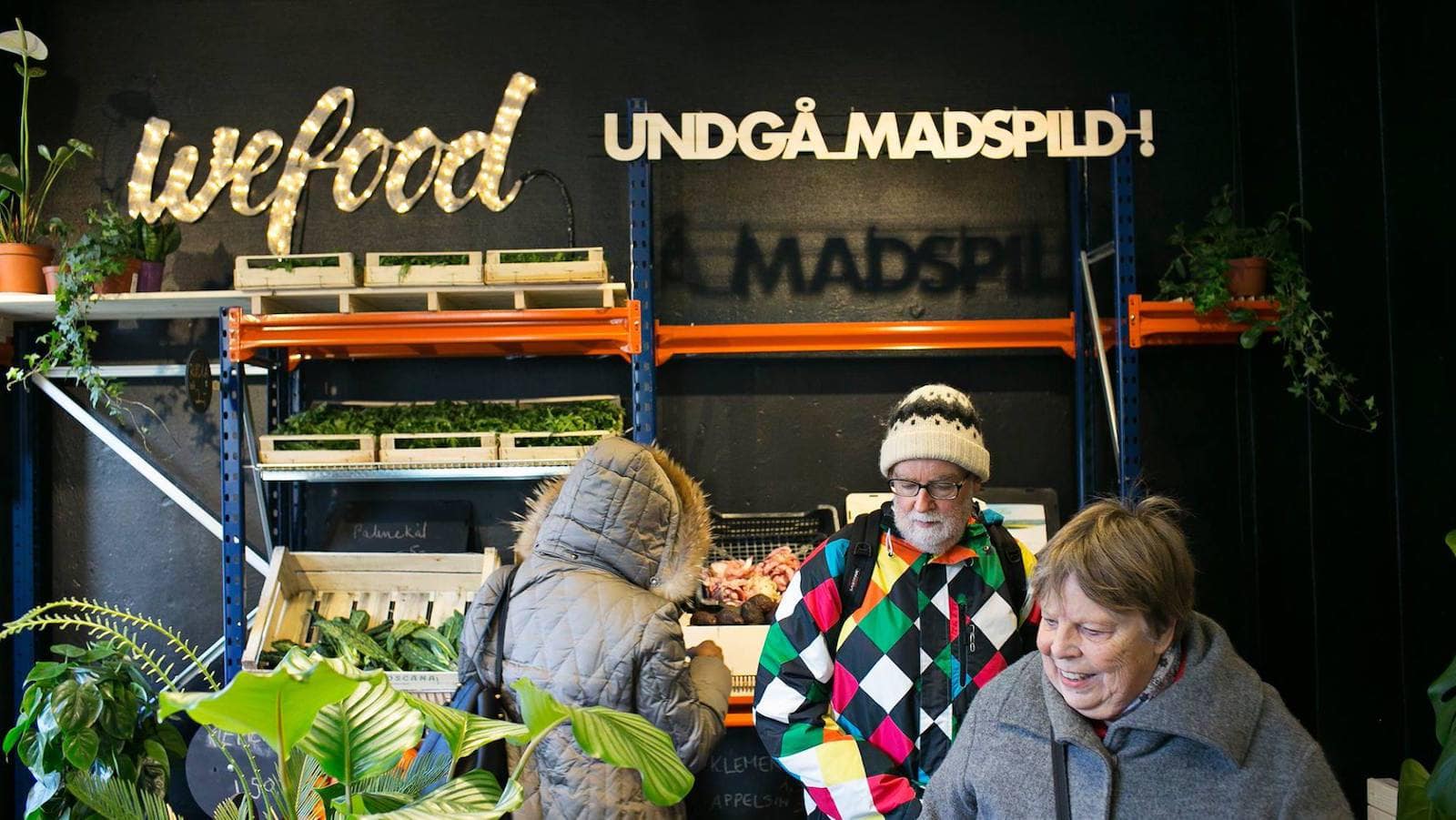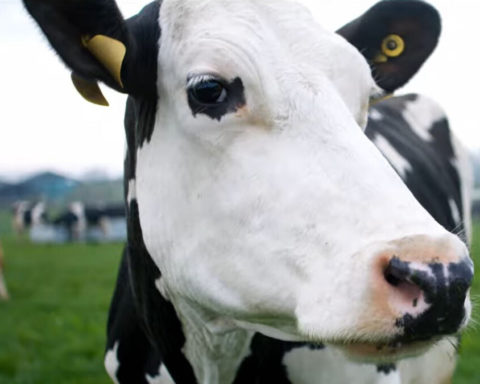While France throws away about 1.5 million tons of food waste per year, a law, promulgated on February 11th, now obliges supermarket chains to give their unsold goods to charities. But Denmark, where nearly 700,000 tonnes of food are thrown away every year, is going further in the fight against waste. A new kind of supermarket has just opened its doors. At Wefood, they only sell expired food, or food with faulty packaging, at prices 30 % to 50 % lower than in a normal supermarket.
Acheaper to buy products abandoned by supermarket customers: this is what makes supermarket regulars salivate. Wefooda new kind of channel set up in Copenhagen. After a first shop in Amager, an island in the Danish capital, Wefood opened a branch in the trendy Nørrebro district, a Mecca for Danish-style cultural melting pots.
Only products that have passed their expiry date or whose packaging has been damaged are sold there. Profits are donated to charity.
On the opening day in October, hipsters and mothers elbowed their way to a bowl of soup concocted from unsold cauliflower by disciples of Claus Meyer, one of the founders of Noma, Copenhagen's famous star restaurant. "It's cool that instead of throwing away the ingredients, they choose to sell them! We're supporting a good cause by coming here," says student Signe Skovgaard Sørensen, who is delighted to have found a top-of-the-range bottle of olive oil for 20 crowns (2.7 euros).
"Isn't it fantastic? »Olga Fruerlund, a pensioner who has just found a jar of candy, a future Christmas present for her grandchildren, marvels. These delicacies "can last a hundred years because of the sugar they contain..."she says mischievously.
Danish legislation allows the sale of products after their expiry date as long as they do not present an immediate risk to health and as long as this is indicated on the packaging.
Half the price
However, customers still need to be persuaded that products remain edible after the expiry date. At Wefood, "we look, smell and inspect to see if the product is still edible," explains one of the managers, Bassel Hmeidan.
All products sold in Wefood stores are donated by producers, import and export companies and local supermarkets. They are collected by Wefood staff, made up exclusively of volunteers. The prices displayed are less than half those of other food stores.
But it's a challenge to feed oneself exclusively here, because the offer, which depends on the arrivals and the good will of the donors, is by nature eclectic: next to a profusion of Disney-stamped pop-corns, one can only find dented apples as fruit...
The fight against food waste is a priority throughout Europe, where various initiatives, both political and popular, are being developed. In 2015, France banned the disposal of unsold food.
In Great Britain, the first unsold goods supermarket opened near Leeds in September: there, British customers are invited to pay whatever amount they wish, as they wish - unlike the Danish Wefood model where selling prices are fixed - with the emphasis on the fight against poverty.
According to the Food and Agriculture Organization of the United Nations, FAO, nearly 1.3 billion tons of food is wasted each year, a resource that could meet the needs of the world's one billion hungry people.
A concept that has become 'very popular'.
In five years, Denmark has reduced its food waste by 25%, according to the government. This performance is partly due to the impetus of the organisation "Stop Food Waste", founded in 2008 by Russian-born activist Selina Juul, who arrived in Denmark at the age of 13 in 1993 and was outraged by food waste. The concept has become "very popular," she says.
One of his association's flagship proposals consists of major promotions on items that are nearing their expiry date. This principle has been adopted by the majority of supermarkets in Denmark, and is also used in other countries. Wefood intends to continue its expansion. Next year, the association plans to open a store in Aarhus, Denmark's second largest city.
The Danish Grocers' Association, however, believes that it would be even better to take the problem at its root: food waste must be "solved beforehand, before you even have to give the products to a store like Wefood," says its director, John Wagner.
Some people go that way. Rather than offering "two for the price of one" when the expiry date is approaching, the Rema 1000 low-price chain has chosen to reduce the size of the portions on sale, particularly for bread, so that people living alone no longer throw away the unused surplus.
Source: Sören BILLING - AFP













